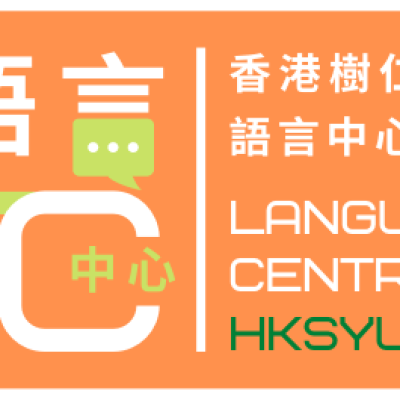Sessions / Location Name: Room E304
Location not set by organizers
Location:
Building: Lecture Hall Building < Tokyo University of Science, Katsushika Campus
Simple NLP for Learner Corpus Analysis: A Hands-On Workshop #4168
In applied linguistics, particularly within ESL and EFL contexts, the ability to develop and analyse learner corpora has become increasingly important (Deshors & Gries, 2020). Learner corpora, structured collections of texts produced by language learners, can provide invaluable insights into language development and inform pedagogical strategies. Integrating these corpora with natural language processing (NLP) techniques, such as part-of-speech tagging and lemmatisation, enhances the automated calculation of lexical richness measures, thereby offering more nuanced assessments of EFL written (Spring & Johnson, 2022) and spoken (Kyle, 2021) proficiency. Moreover, NLP can help develop targeted pedagogical materials (Granger et al., 2007). This hands-on workshop introduces participants to foundational Python programming and provides practical experience with NLP libraries, including the Natural Language Toolkit (NLTK) and spaCy. The workshop will cover installing and employing NLTK and spaCy to analyze textual data for lexical properties such as tokenization and part-of-speech tagging. No prior programming knowledge is required; the workshop is designed to guide participants through a series of tasks within a shared Jupyter Notebook. We will use a Google Colab notebook explicitly developed to provide participants with step-by-step instructions for writing simple code in Python and importing and analyzing text in a practical, hands-on learning environment.
The Effect of Integrating Generative AI into Scaffolded-Pre-Reading on University Students’ English Reading Comprehension, Motivation, and Attitude toward English #4367
Given the positive impact of scaffolding on English pre-reading activities and the benefits of generative AI tools for language learning such as more personalized learning environments and conversational dialogues between learners and AI tools, this research aims to investigate the effects of integrating generative AI tool, ChatGPT, into scaffolded pre-reading activities. A quasi-experimental research was adopted and a total of 97 freshmen students were involved with 51 in the experimental group and 46 in the control group to compare the potential effects of the Gen-AI-supported scaffolds with the traditional teacher-led scaffolded English pre-reading activities on university students’ English reading comprehension performance via pre- and post-tests. A questionnaire was also conducted before and after the experiment to examine participants’ learning motivation and learning attitude toward English.
The Effectiveness of Flip and Flip Camera Within Microsoft Teams for Education as Homework #4313
This study looked into the effectiveness of the video discussion platform Flip (formerly Flipgrid) as homework in a university elective English conversation class (N = 19) in terms of several aspects. A pre-post survey measuring willingness to communicate (WTC) followed by a paired samples t-test indicated no significant change. However, in an open-response self assessment comparing both their first and last videos, participants reported various types of improvement, especially fluency as well as confidence, but also vocabulary, pronunciation, cohesion, content/depth, intonation, gestures/facial expressions, and comfort in front of the camera. A survey measuring usability of Flip in both its original form and its current version within Microsoft Teams, which it transitioned to mid-semester, was conducted; a paired samples t-test indicated a statistically significant preference for the original Flip in terms of general ease of use, ease of posting a video, ease of posting a comment, and overall satisfaction. Accordingly, it is recommended that future research on this topic investigate oral proficiency rather than WTC. Furthermore, while students seemed to feel positively about this type of homework, a replacement for Flip will need to be found as the current iteration is too unwieldy to use in the classroom setting.
From Play to Proficiency: Assessing Digital Natives’ Language Skills with Zep Quiz #4294
Incorporating technology into classroom assessment can enhance student engagement and learning outcomes, particularly among today’s learners who are accustomed to interactive, digital environments. This exploratory study investigates the use of Zep Quiz, a game-based formative assessment tool, in an English language classroom at SMAN 23 Bandung, West Java, Indonesia. Over four weeks (eight class meetings), 30 tenth-grade students participated in Zep Quiz activities designed to assess various language skills. The study adopts a qualitative case study approach, collecting data through classroom observations, student reflections, and teacher notes to explore the implementation process, student engagement, and challenges faced during the integration of the tool. Preliminary findings suggest increased student motivation and active participation compared to traditional assessment methods. The interactive format of Zep Quiz appeared to support better engagement and retention. However, challenges such as occasional technical difficulties and the need for pedagogical adjustment by teachers were also noted. This presentation will discuss the pedagogical implications of game-based assessment in ELT and reflect on practical strategies for integrating such tools effectively. No commercial affiliation or financial interest is associated with this presentation.
Language Learning in Interaction with Digital Tools: Insights from the Concept of Digital Translanguaging #4292
Recent advancement of digital technology has transformed the traditional ways of learning languages. Some digital tools have provided multilingual facilitation, creating a translanguaging space to construct linguistic knowledge in a preferred language (L1/target language (TL)). However, CALL research has largely been influenced by traditional SLA research that views languages as separate linguistic systems. Such a view considers languages other than the target as a deficit to be eliminated/suppressed. This study examines the potential of “digital translanguaging” as a concept to examine the interplay of languages in ways that blur boundaries between not only linguistic but also linguistic and digital meaning making resources in learners’ repertoire. Data consist of writing samples from five multilingual participants, video recordings of their writing process, and stimulated-recall- interviews conducted with them. The findings show how digital tools (online translators, bilingual dictionaries) combined with multilingual resources can be a powerful contributor to negotiate and co-construct new rules and lexical meanings of a TL. We demonstrate how the integrated view of language helps us understand the resourcefulness of multilingual students challenging deficit assumptions. We argue how seeing these resources as interconnected is significant for a shift from a deficit- to resource-based perspective in CALL.
Generative Artificial Intelligence Tools in University English Language Education: A Systematic Review #4286
Generative artificial intelligence (GenAI) tools have become increasingly integrated into language classrooms to enhance teaching and learning. Despite burgeoning research into the pedagogical applications of GenAI, the synthesis of evidence regarding their use in English language education remains limited. This paper aims to fill this gap by presenting a systematic review of GenAI use in university English language education in terms of the types of GenAI tools used, the ways they are used, and their impacts on teachers and students. Twenty research articles sourced from Scopus were analyzed. Findings reveal that the various GenAI tools used in English language classrooms offer significant potential for facilitating personalized learning, enhancing student engagement, and providing efficient feedback mechanisms. Findings also highlight challenges that need to be addressed, such as maintaining academic integrity and providing professional development for effectively integrating GenAI into teaching and learning. Pedagogical implications and directions for future research will be discussed.
The Impact of ChatGPT on Translation Tasks in Hong Kong Universities: Implications for Future Educational Practices #4331
Since its release on November 30, 2022, by OpenAI, ChatGPT has emerged as a transformative technology with significant implications for various sectors, including in the field of academia and professional translation. While much of the existing research has focused on evaluating ChatGPT’s translation quality, there has been limited exploration of its impact on translation tasks from the perspective of students in higher education. This study aims to investigate the impact of ChatGPT on translation tasks within Hong Kong universities by collecting quantitative data from approximately 200 students studying translation who use the tool in the context of their studies. Utilizing a non-probability sampling technique, participants will complete an online questionnaire and participate in focused interviews. The study will examine how ChatGPT influences translation tasks, considering factors such as motivation, perceived benefits, challenges, and overall perceptions related to its use. In this presentation, we will showcase the preliminary findings of the study. Findings from this research will provide valuable insights into the impact of ChatGPT on translation practices in higher education and suggest implications for future educational practices. These insights will contribute to a deeper understanding of how AI technologies like ChatGPT can support translation education and inform potential integration strategies moving forward.
Exploring AI-Generated Materials for ESAP in STEM: A CALL-Based Evaluation of Engagement, Efficiency, and Adaptability at XJTLU #4194
As AI tools become increasingly integrated into language education, their role in Computer-Assisted Language Learning (CALL) requires critical examination. This study, conducted at Xi'an Jiaotong-Liverpool University (XJTLU), a flagship Sino-British institution in China, explores the use of AI-assisted materials in teaching a Year 2 English for Specific Academic Purposes (ESAP) module for STEM students in a transnational context. Through a CALL-oriented framework, the research investigates how AI-generated materials impact student engagement, lesson planning, and additional exercises.
By evaluating the efficiency, content quality, and adaptability of AI-generated learning resources, this study assesses their alignment with discipline-specific language use, students' proficiency levels, and pedagogical best practices in CALL. Additionally, the research addresses key challenges such as the authenticity of AI-generated content, the role of instructor mediation, and the AI literacy required for effective integration. The findings contribute to discussions on optimizing AI tools for CALL-based language instruction, offering practical insights into their application in STEM-focused curricula and beyond.
AI in the Writing Classroom: More Than Just a Chatbot #4179
As AI tools become increasingly prevalent in education, the challenge for instructors is moving beyond AI as a mere novelty and leveraging it as a meaningful tool for writing fluency and discussion. This hands-on workshop will introduce educators to an AI chatbot-based approach designed to support EFL students in brainstorming, developing ideas, and refining their writing through structured peer-like AI interactions. Drawing from a classroom-tested framework, this session will demonstrate how chatbots can help reduce student hesitation, enhance fluency, and provide low-stakes opportunities for idea generation. Attendees will engage in a live demonstration, explore effective prompting strategies, and gain access to a customizable AI chatbot template they can use in their own classrooms. The workshop will also address potential pitfalls, including over-reliance on AI-generated content and strategies for maintaining student agency. Participants will leave with practical, research-informed strategies to integrate AI in ways that align with communicative language teaching and enhance student engagement in writing courses.
Exploring the Propositional Content of a Corpus: A Comparative Case Study of Methods in Keyword Analysis and Topic Modeling #4314
Keyword analysis is a popular method for text analysis as it identifies words that reflect the propositional content of a group of texts when compared to a reference corpus. Recently, topic modeling has been increasingly used for similar purposes as it identifies thematic groupings of words that co-occur within and across the texts, but unlike keyword analysis, words are identified independently from a reference corpus. In this presentation, findings from quantitative metrics and qualitative methods used to compare and contrast the output of two methods of keyword analysis (i.e., log-likelihood and t-test) and topic modeling are shared. It was found that keyword analysis utilizing log-likelihood provides an accurate overview of the propositional content of texts with a strong focus on content words. Wordlists generated via the t-test demonstrated substantial overlap with log-likelihood, but featured comparatively more function words reflecting academic writing conventions. Finally, words generated by topic modeling had more in common with the log-likelihood keywords than the t-test, and benefitted from the grouping of co-occurring words and independence from a reference corpus. These findings have implications for CALL, as corpus-based text analysis can support vocabulary development and academic writing by providing learners with targeted and discipline-appropriate linguistic insights.
The Effect of AI-assisted Shadowing on Pronunciation for EFL Students #4275
This quantitative study compared the effectiveness of both traditional and AI-assisted shadowing in improving students’ English pronunciation. Sixty-two EFL students from two intact speaking classes (Class A, n = 32; Class B, n = 30) at a Japanese university completed 20 shadowing practice exercises, in addition to a pronunciation pre-test and post-test. Class A, the control group, recorded themselves shadowing 20 different audio clips. The teacher gave pronunciation feedback on each of the recordings. Class B, the treatment group, used an online application called “Shadowing” to complete the same shadowing exercises. The application provided pronunciation feedback for their recordings. The pre-test and post-test shadowing recordings were marked by two independent raters, who were English language teachers. Following the post-test, a 20-item questionnaire was administered to assess student perceptions of the effectiveness of the shadowing exercises. The pre-test revealed no significant differences between the groups, in terms of their shadowing abilities. However, the post-test results demonstrated that the treatment group scored significantly higher than the control group. A Cohen’s Kappa analysis indicated no notable differences between the raters’ scores. The study underscores the value of shadowing and using AI-assisted applications in language learning to augment students’ language learning experiences.
Speed Reading in the Digital Age: Advice for Teachers #4203
Reading speed is a crucial yet often overlooked component of reading fluency (Tran, 2012). Research shows that learners can significantly increase their reading speed in as few as 20 sessions of 10 minutes each (Chang, 2010; Chung & Nation, 2006). While most studies focus on printed texts, little attention has been given to the impact of reading medium (i.e., paper vs digital devices) on fluency development. This presentation explores the pedagogical implications of medium choice in speed reading instruction, and offers practical advice for implementing a digital speed reading program in the EFL classroom. It reports on a study in which 68 university students in Japan read short stories using paper copies or ESL Speed Readings, a free mobile application. After six weeks, students switched formats and reflected on their experiences in questionnaires. Findings suggest digital reading enhanced fluency development and offered practical classroom advantages, with both students and teachers expressing positive attitudes toward the medium. Based on these insights, a framework for implementing an effective speed reading program will be outlined. Attendees will receive practical guidance, including access to free speed reading software and a learner management system, to help integrate digital speed reading into their teaching contexts.
Harnessing Collaboration Potential Through Prompt-Feedback Mediated Learner Grouping: A Corpus-based Assessment of Human-AI Interaction Efficacy in Language Learning #4214
A dynamic grouping mechanism, developed through clustering human-AI interaction patterns, is devised to optimize learner collaboration by calibrating group settings in language learning contexts. A corpus-based comparative analysis of writing task performance and prompt-feedback data clusters is conducted across three division settings: random, self-organized and prompt-feedback mediated grouping. Seventy-five advanced English learners are organized into fifteen groups, rotating through the three division settings, and assigned three writing tasks: (1) product descriptions, (2) marketing proposals, and (3) holding statements. These tasks are completed with the support of AI, during which data on prompts and feedback are recorded, categorized, and analyzed alongside the final submissions which are graded through a blind peer-review process. Key metrics, including the frequency of human-AI interactions, the adoption ratio of AI assistances, the coverage ratio of AI references, and the duration of task completion, are examined and compared across group profiles and task grades, revealing distinct group performance patterns to collaboration dynamics. The integration of AI into language learning has expanded the possibilities for diverse and adaptive learning environments, which ensure the compatibility between task objectives, collaboration requirements and group dynamics to enhance collaboration potential and optimize learning efficacy.






